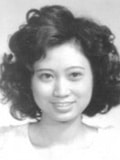
More Mental Health Articles
Acupuncture For Migraine
Migraine headache is a symptom of complex periodic headaches, usually temporal and unilateral, often with irritability, nausea, vomiting, blurry vision and photophobia, preceded by the constriction of the arteries inside the brain, and commencing with the vasodilation that follows.
Headaches are the most common complaint causing distress. Most headaches are caused by an inflammation of blood vessels in the head. This is usually triggered by emotional factors such as fatigue, tension, worry and anxiety.
Migrainouse headaches do not usually conform to a particular pattern, but may generally be lateralized or generalized, and may be dull or throbbing. They usually build up gradually and may last for several hours or longer.
Ophthalmoplegic migraine is lateralized pain often around the eye and is accompanied by nausea, vomiting, and double vision due to ophthalmoplegia. The opthalmoplegia is due to the third nerve palsy and sometimes involves the sixth nerve, which may cause eye pain for several days or even weeks.
Prolonged headaches may be the sign of a more serious medical problem such as a tumor or an abscess.
Migraine headaches are often part of family history. Attacks may be triggered by emotional or physical stress, lack of or excessive sleep, missed meals, specific foods, i.e. chocolate, alcoholic beverages, menstruation or use of oral contraceptives.
The pathophysiology of migraine probably relates to the neurotransmitter serotonin. Headaches may result from release of neuropeptides acting as neurotransmitters at the trigeminal nerve branch, leading to an inflammatory process.
Management of migraine consists of avoidance of any precipitating factors, together with prophylactic or symptomatic pharmacologic treatment. During the attacks, many patients find it helpful to rest in a quiet, darkened room until symptoms subside. Many drugs can relieve the headache temporarily, but there may be side effects.
Acupuncture treatment is a method to help people relieve pain without side effects. According to Chinese medicine, the head is where six meridians meet. Energy and blood of the vital organs all flow to the head. A headache is due to derangement of energy and blood in the head and retardation of circulation of energy in the meridians that traverse the head.
The treatment principle is to regulate circulation of energy and blood, promote the clear energy to ascend and the turbid energy to descend. Acupuncture points are primarily selected from the three hand meridians and the three foot meridians to balance the six meridians. Acupuncture may help people to relax, reduce stress, reduce the frequency of headaches, and reduce the need for painkillers.
Other Articles You May Find of Interest...
- The Challenges of Being an LGBTQ+ Parent
- Embracing Healing: Navigating the Emotional and Physical Journey of Mastectomy Recovery
- Understanding the Role of Support Groups in Personal Development
- Ways To Check On a ‘Mama’ In Your Life
- How to get rid of stress
- The Impact Of Mental Illness
- Healthy Mind In a Healthy Body

















